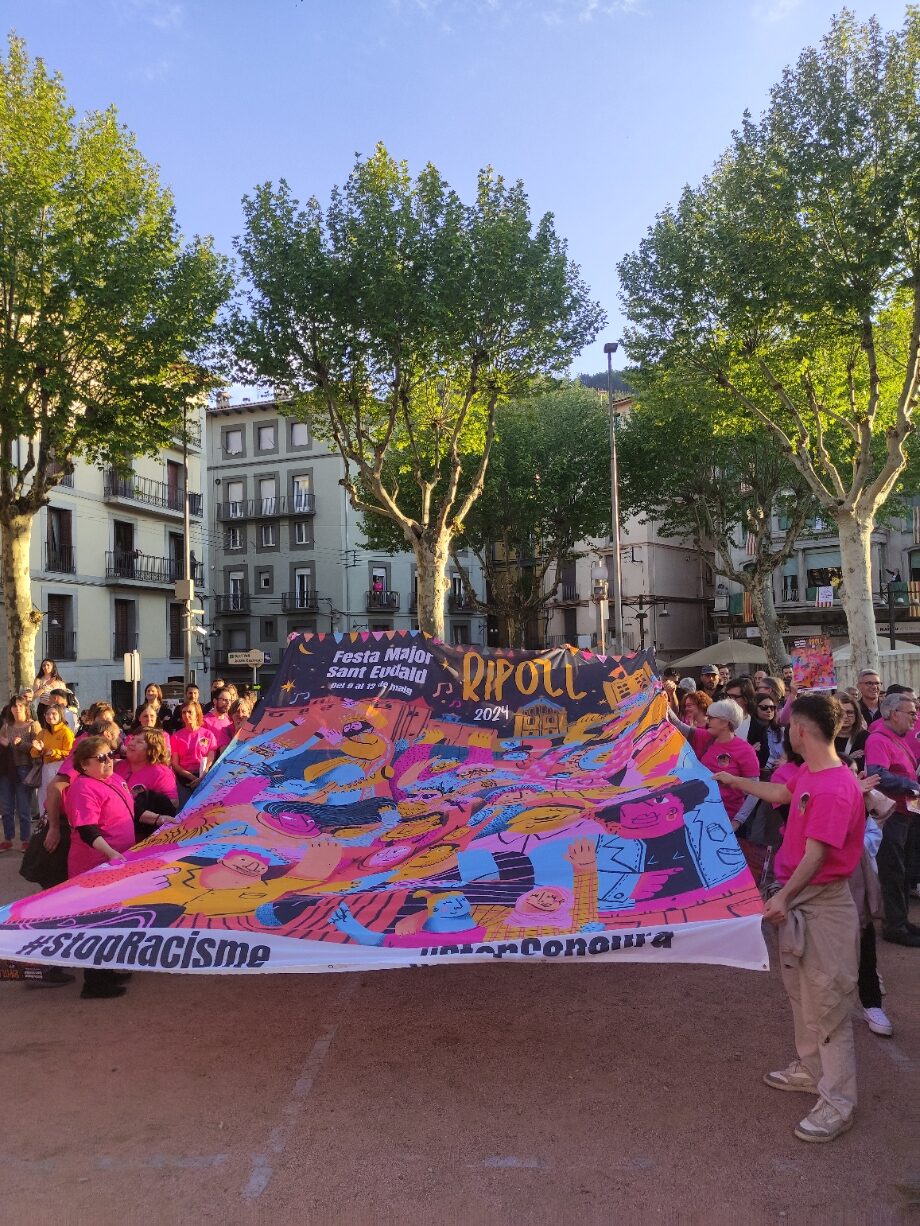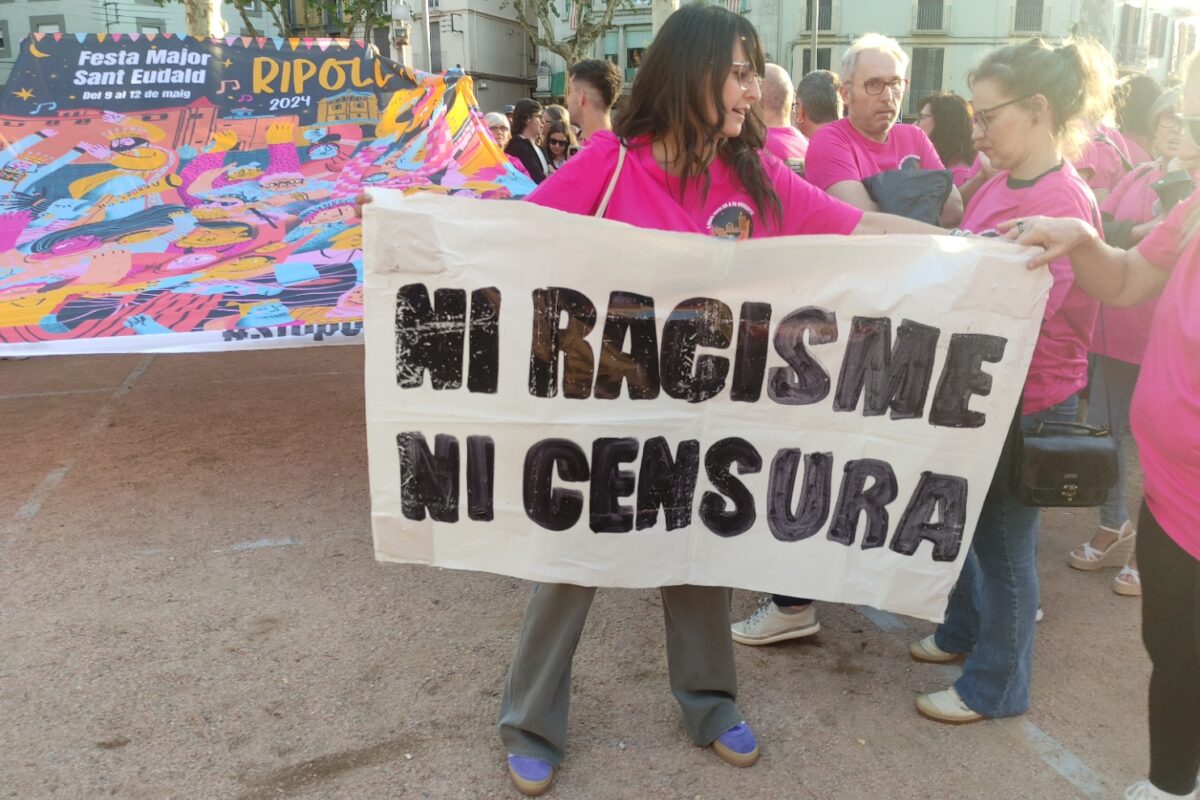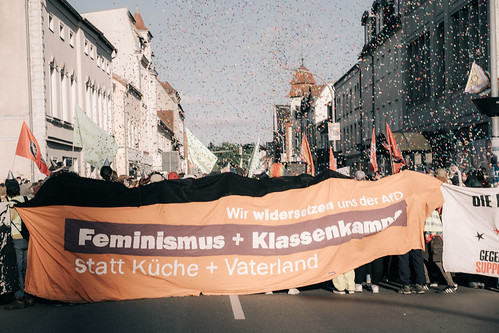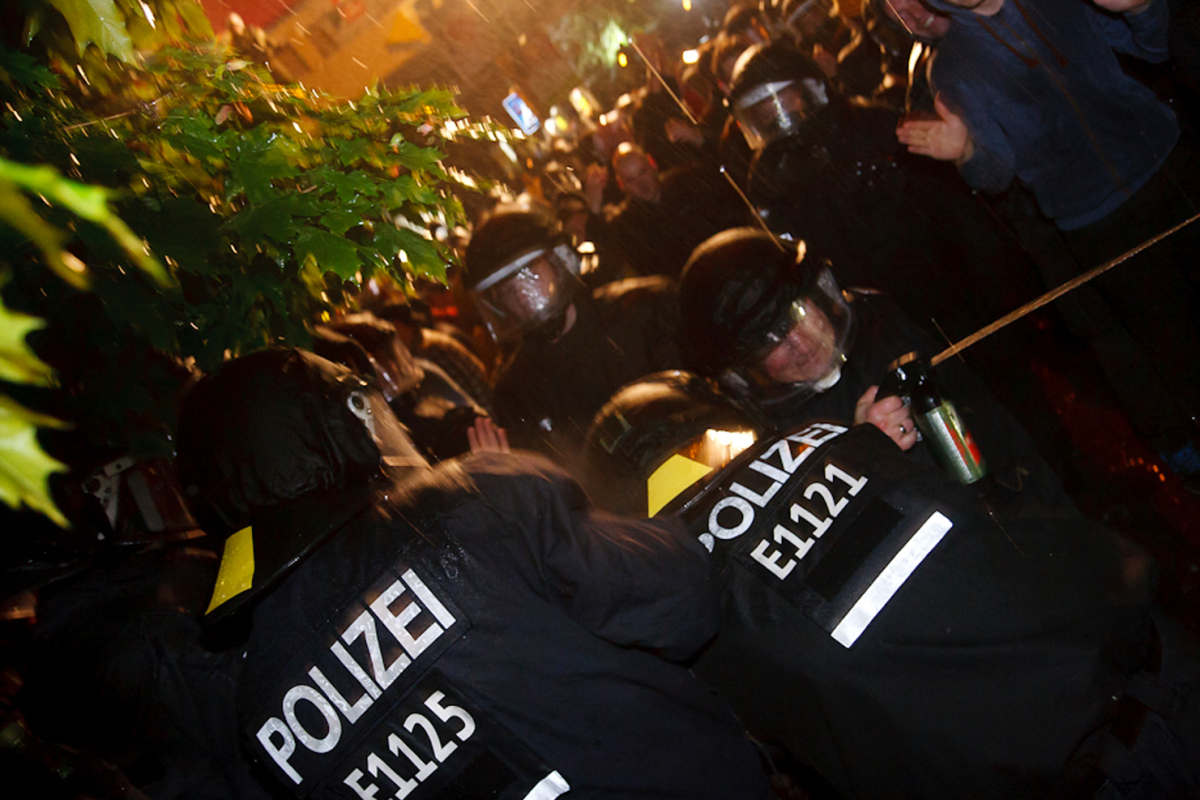“The old world is dying, and the new world struggles to be born: now is the time of monsters.”
― Antonio Gramsci
The Catalan Socialist Party (PSC), the Catalan section of the Spanish ruling Socialist Party (PSOE), have clearly won the Catalan Autonomous regional elections. The 6th elections in 12 years reflected the struggle for independence and the inability to form a stable government. The mass pro-independence movement 2017 referendum was sabotaged and repressed by conservative (PP) and “socialist” (PSOE) governments. The result is the minority victory for the PSC. The pro-independence movement is worn out and demoralised. Thousands of activists and pro-independence voters showed disgust and demoralisation with their traditional parties.
The changed political panorama includes a consolidation for traditional and far right pro-Spanish parties PP and Vox. PP surged from 3 to 12 MPs. But the far-right Aliança Catalana also emerged – led by a messianic Islamaphobe and anti-immigrant Catalan “identity” activist named Sílvia Orriols. First Orriols won the mayorship of the mountain town Ripoll, home of three of the young men involved in the terror attack in Barcelona in August 2017. But now she has given voice to the racist and Islamophobic pro-independence voters, entering the Catalan government with 2 MPs, a dangerous precedent.
The reformist left group, heirs of Podemos, and the IC (eco-socialist force of Initiative for Catalonia Greens), named the Comuns with Sumar – lost heavily (8 to 6 MPs). The radical left CUP (9 to 4 MPs) lost tens of thousands of votes. They barely defeated the far-right AC group votes (4.1 % and 3.8% respectively).
Catalonia is now like the rest of Europe, with a right wing electoral drift. All the left alternatives (ERC, left republicans in name but the minority governing party) and Comuns and CUP lost heavily. Comuns were heirs of the Podemos utopian “municipal and state management” of socialism. But they lost their social base, their leading activists preferred the council office to the street. The CUP [Popular Unity Candidature]) lost a large part of their support. Their official line remains “correct” (independence, socialism, feminism, ecology, housing, anti-fascism, anti-racism, LBGT rights, etc). But they are not always involved in local struggles, and in some cases abandoned the independence movement, leaving many new, activists demoralised and having to fend for themselves against Spanish state repression. They had no credibility at the ballot box. Fortunately the CUP are debating their future and rebuilding.
For the first time in decades, the pro-Independence parties no longer have a majority. The PSC has won in both votes and seats, but cannot form a majority government without pacts with the right or the left. If they fail to form a “progressive” government with ERC and Comuns, it will form an alliance with traditional right-wingers PP party, or the right-wing neo-liberal Catalan nationalist party, Junts. The leader of Junts is the exiled (at time of writing) ex-President Carles Puigdemont.
These complex “game of thrones” negotiations, and the interests of Catalonia are now intrinsically linked to those of the Spanish State and the shaky government of the PSOE socialist party in Madrid, which uses Sumar (formerly IU, the United Left) as its own left, “progressive” cover. Most of its legislation (on migration and workers’ rights) are carbon copies of the neo-liberal right-wing demands. These include more control on the frontiers, repression of dissidence and anti-fascism, and impunity for fascist attacks and corruption. At the time of writing, talks have begun for a possible “three-party” progressive government.
The contortions of the Right need further explanations. Ciutadans, a party invented 18 years ago to pave the way for legitimising extreme right wing, anti-abortion, pro-Spanish views within society disappeared. This provided the boost for the PP, who won those votes back. But the work was done by Ciutadans, and consolidated VOX as a political force. Their programme is a simple formula: populism and mainly anti-Muslim racism. Their strength in Spain and in Catalonia is a staunch opposition of everything Catalan and foreign. Their voice is the dissatisfied Spanish-Catalan population who feel discriminated against by Catalan pro-independence parties and governments. Their support is based in the larger metropolitan areas. In contrast the pro-independence parties are strongest in the semi-industrial and rural areas, with smaller populations.
Here emerged the anti-immigration, racist, supremacist formation of Aliança Catalana. The differences between AC and VOX are only nuances. They have similar statements, similar solutions to similar issues: illegal migrants, crime and migrants, security and migrants. The difference is that one waves the Spanish flag and the other the Catalan flag. Their supporters are generally racist, Islamophobic patriots. Those of VOX are enraged by the concessions made to Catalan defenders of independence. Those of AC, by failed attempts by the traditional pro-independence parties to achieve their goal.
The failure of what is known as the “process” left a space open to racist supporters of independence. They were always present, but now have a voice of their own. Led by the aforementioned Silvia Orriols, AC had no political organisation to speak of, but captured 118,000 votes (3.7%) and two MPs. She continuously bellows fake news and racism on the social media. There her army of followers, “outfake” each other in racist and Islamophobic rumours. It is textbook populism, feeding off discontentment, while claiming to be the victim of the opposition and the Spanish government. Sadly, she can enjoy her position because of the lack of united action by the democratic opposition parties. In her town, she enjoys 33% of the vote, won 2 other nearby municipalities and came second in many other places. This drew votes from all other pro-independence parties, and even from VOX. Fascist voices are everywhere, including now in the Catalan Parliament. That gives them subsidies and more media coverage. Unless there is a real organised opposition to both VOX and AC at grass-roots level, they will grow.
To conclude, even if agreements can form the new Catalan government, it will be the most right-wing version ever. Only a very few authentic left-wing voices are left there. For the first time, it will have an openly xenophobic, Islamophobic Catalan organisation, built on the grave of the pro-independence movement in just 5 years. All this in a period of crisis. Not only climate crisis, but also low wages, precarious employment, housing speculation and high prices, evictions, ongoing cuts in education and health, atomised defensive workplace struggles and a general downturn of working class activity. All this – and a European alliance with imperialism in the Middle East with the current genocide in Palestine. There will be very little progressive legislation in a new Catalan government.
In summary: The anti-capitalist left needs to take stock of its failure to address these issues while reaching people seeking answers and solutions. That means breaking out of the comfort zones and bubbles that it is so easy to remain protected in.

Organising Hopes
A small example of resistance can be seen by returning to the mountain town of Ripoll. In a popular vote for the poster of the Annual Festival, the mayor demanded that the winning author remove one tiny image. It was of a young woman wearing a veil, in order not to promote “Islamic misogyny”. The author refused, stating her design reflected the reality and diversity of the town. The mayor then banned the poster, awarding the second-placed poster the first prize, which overrided both the commission and the public decisions. Censorship not experienced since the times of Franco! In response, a group of young people set up a Whatsapp group. Soon more than 100 people decided to print the original posters and over three weeks flyposted the entire town with it. It had the message – “Stop Racism and Stop Censorship” – on the bottom. The mayor herself spent entire mornings wandering the town tearing down the poster. Then over 400 T-shirts were sold. On the day the festival opened, the square was filled with the pink T-shirts and her speech was drowned out by the crowd chanting “No to Censorship”. The poster hung in private businesses and many balconies. There was a great feeling of solidarity among all those who wore the T-shirt. The short campaign involved young and old alike, of all parties and none. The election result was a blow, but the WhatsApp group will hopefully become a focus of anti-racist activity in the future. Many people in the group want to carry on working. A small but significant example of united campaigning, started from a poster design! We do not always choose our battlefields. Some local anti-racist, cultural and youth associations also joined together to publish a leaflet against the racist vote, showing the politics of VOX and AC, as two sides of the same coin. 5,000 were delivered to every letterbox in a few days. Small, local actions offer the chance to participate and stem the tide of reaction. The town has also seen talks and actions on Palestine in recent months. Open support for Israel only began from the far right in Catalonia since October 7. Their Islamophobia has surpassed their historic antisemitism. They now have a new enemy to victimise.
If we don’t intervene in the struggles, that space will be quickly filled by Gramsci’s monsters.




